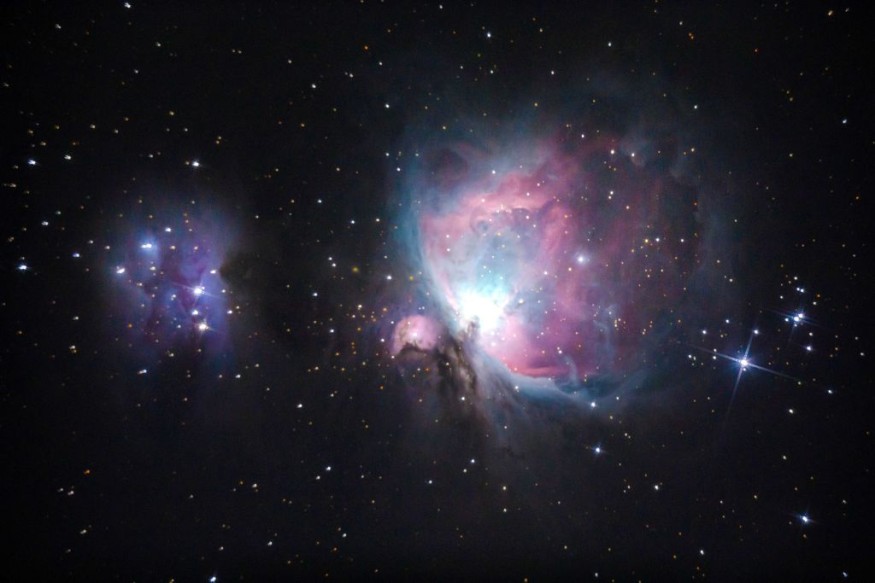People usually believe that the Big Bang is the beginning of the universe's expansion. However, a new study shows that the cosmos may shrink in 100 million years.
The details of the research are found in the paper titled "Rapidly descending dark energy and the end of cosmic expansion," published in the Proceedings of the National Academy of Sciences of the United States of America.

Universe to Shrink Billions of Years After Big Bang
Scientists at Princeton University utilized earlier cosmic expansion findings to describe dark energy, a mysterious factor that accounts for roughly 70 percent of the universe's mass.
The repulsive force appears to be pushing the universe to expand at an increasing rate, but astronomers believe its effect is waning.
According to their hypothesis, the universe's acceleration might stop in the next 65 million years, and the cosmos could cease expanding ultimately and begin shrinking in the following 100 million years.
Research co-author Paul Steinhardt, head of the Princeton Center for Theoretical Science at Princeton University in New Jersey, said this would result in a "Big Crunch" that might occur "remarkably" soon.
"Going back in time 65 million years, that's when the Chicxulub asteroid hit the Earth and eliminated the dinosaurs," Steinhardt told Live Science.
He added: "On a cosmic scale, 65 million years is remarkably short."
According to Gary Hinshaw, a physics and astronomy professor at the University of British Columbia who was not engaged in the study, "nothing about this idea is problematic or impossible."
The predictions in this research are now challenging to test since the model is based only on historical measurements of expansion - and because the current nature of dark energy in the universe is such a mystery. However, these are only theories for the time being.
About Dark Energy
The cosmological constant, defined as the magnitude of uniform energy density that pervades space, was proposed by Albert Einstein to explain why the universe was not collapsing.
However, in 1998, cosmology suffered a paradigm change when astronomers declared that the pace of expansion of the cosmos had increased since the Big Bang.
ALSO READ : Humans Might Need to Wait 400,000 Years for Intelligent Civilization to Communicate Back
As a result, the cosmological constant had to be assigned a non-zero value, and many people assumed that this expansion meant the universe was about to collide.
Scientists, per Daily Mail, called the enigmatic cause of this acceleration as dark energy.
Dark energy is a hypothetical type of energy that acts against gravity. It hastens the expansion of the cosmos.
Nobel laureate Frank Wilczek of the Massachusetts Institute of Technology has described dark energy (per Unilad) as the most puzzling truth in all of physical science, the one with the most potential to disrupt the foundations.
If dark energy has a dynamic field termed quintessence, it's possible that its opposition to gravity may fade away, and its power would lessen with time. It implies that the cosmos may someday cease to expand and contract instead.
While the universe began with the "big bang," the "big crunch," with the cosmos collapsing on itself, might occur later.
Theoretical physicist at the California Institute of Technology in Pasadena, Sean Carroll, told Nature that the universe will collapse into a "Big Crunch," and its push on expansion will gradually wither or evaporate, or perhaps reverse to become an attracting factor if dark energy is a quintessence.
However, proving the idea might take millions of years since scientists would have to analyze signals from light-years distant.
RELATED ARTICLE : 8 New Echoing Black Hole Binaries Discovered In Milky Way Galaxy: Listen to the Eerie Sounds They Make
Check out more news and information on Space in Science Times.
© 2025 ScienceTimes.com All rights reserved. Do not reproduce without permission. The window to the world of Science Times.












